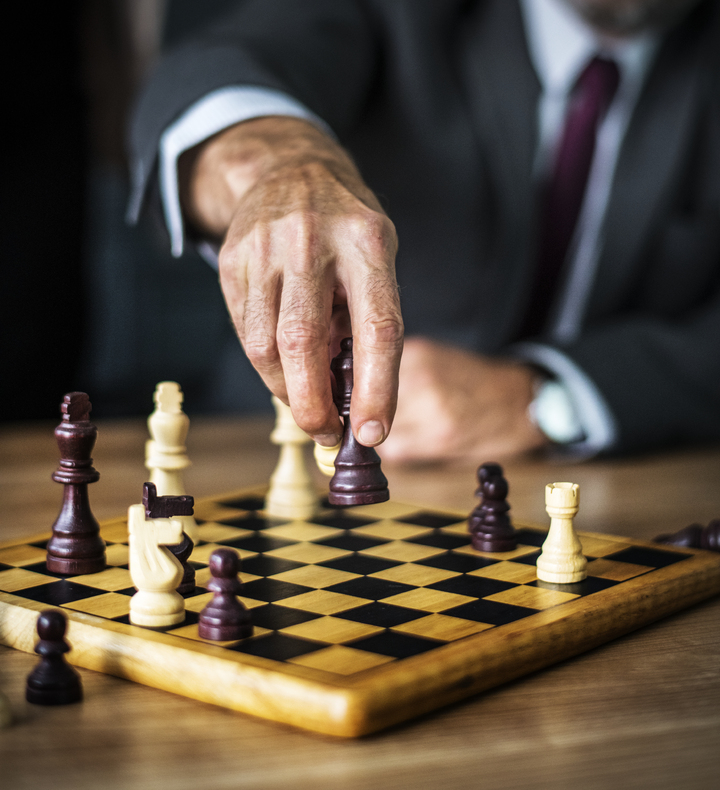When I was a teenager, I used to play chess. I was never very good at it, but I took it seriously, read lots of chess books, played on the school team, and joined the local chess club. It took a lot of time, really, which is why, around the age of sixteen, I mostly gave it up, deciding that school work, which was getting more intense, took priority. Over the years, there were short periods when I dabbled in chess, but nothing serious.

Around fifty years later, I started playing again for no other reason than that it seemed like something fun to do. Online did not exist back in the middle ages, so this was a completely new element. Being able to play someone, somewhere in the world, at any time, is the very epitome of convenience. Not only that, but a new chess club within a reasonable driving distance opened up.
Then came covid, and I stayed home, playing only online. And, sadly, the club closed. Recently, though, the club reopened, with a new name and new management.
It is very different playing in person. Being in the presence of, while in (friendly) conflict with, another human being feels very different, is very different. It is more fun. And, when you are in your seventies, chess can and should be a lot more fun.
Chess in your teens can be stressful and marred all too often by anxiety. Such is the nature of most things teen. Chess in old age is entirely different. It is still nice to win, but it is far more about having fun with other people.
It is just as well that it is no longer so much about winning. The older brain is replete with experience, but it is, let us say, a little slower in analyzing complexity. It is also more likely to overlook things. In chess, as in many other activities, these over-lookings of things are called blunders. There are many ways of making mistakes in chess. Blunders, though, will generally lose you the game. They will also, if you have not learned to be gentle with yourself, produce feelings of shame and embarrassment. This is where the secret ingredient of being old comes in. What is shame? What is embarrassment? You are already hardened by the countless stupidities you have committed in real life over many years. And this is not even real life. It is a game, a lovely game to be sure, but still only a game.
Being old has another real advantage when it comes to losing. It is nice, so very nice, to see the younger players doing so well. A few weeks ago, I lost a US Chess rated game to someone who looked younger than me. To be frank, he looked a lot younger, and when I asked him his age, he said he was ten. Gulp! I felt a twinge of something at losing to such a youngster. But I felt happy at the realization that in the coming decades there will be bright minds such as this to solve the challenges awaiting in the future.
A week later, I played another rated game—with another ten-year-old. This little fellow, though, looked nervous. He lost his queen soon into the game. His game fell apart, and even though I then blundered away my own queen as well, I was still ahead and won easily. The poor little kid looked so sad. I felt bad for him, but he will be fine. He will learn. He will get better.
I didn’t have to feel bad for someone else this evening. Tonight, there was an informal blitz tournament. In a blitz game, one’s moves must all be made within five minutes, with a small allowance awarded after each move. Tonight I beat my record in losing to young kids. This child was only SEVEN! And, to tell a little secret, he beat me not once but twice.
I need to mention, I feel, that blitz is a totally different kind of chess. Making all your moves in such a short time can be brutal. It requires a nimble, fast brain. It is also not good for hypertension. I also want to say, by way of salvaging just a little self-respect, that I did win some of the many games played that evening. I won a game against a man with a degree in economics. I also won a game against a man who did not have a degree in economics. I also won two games in a row against a lady who was eating chocolate.
I could go on and on, and on some more, but the bottom line is that a seven-year-old beat me twice in a row. It makes one think. So young. So fast. So bright. There are some amazing young kids growing up in the world. May they continue to grow and develop. The world, as always, needs bright minds. If you want to meet a few (and learn humility at the same time), go to a meetup at your local chess club. Just Google “chess near me.”